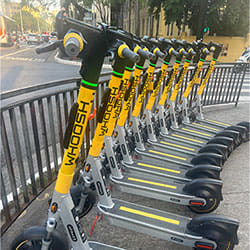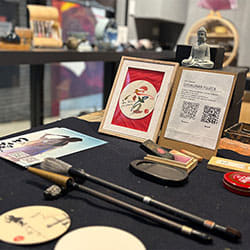I’m sure most of you know that outside of Brazil, Spanish is the language spoken throughout South America. But Spain is part of Europe, right? The countries are geographically distant, yet share a language. No other countries speak Japanese other than Japan, so you might find the concept a little strange.
However, although Spanish speakers from different countries have no trouble communicating, there are differences in words they use, the way they speak, and their pronunciation. The friend I mentioned earlier has just started learning Spanish, and it’s based on the standard Spanish spoken in South America, where she lives. That’s only natural, but here’s what she said:
“Apparently European Spanish is really coarse.”
I guess it’s something that her Spanish teacher in South American told her, but is it really true? Neither she nor I have the ability to detect subtle differences in the Spanish language. What’s more, my Spanish colleague says that the Spanish spoken in South America isn’t standard.
If I had to compare it to something, I guess it’s similar to how Tokyoites say that the Kansai dialect is crass. Or how Kansai women say that they tend to consider a man who speaks standard Japanese as undependable (I happen to have grown up in the Kansai area myself, but I actually love it when men speak standard Japanese because they sound so kind lol). And, aside from those who have lived in Japan a long time, I’m sure that non-Japanese can hardly even tell the difference.
If we think about it in terms of Japanese, two native speakers should have no trouble communicating their personal opinions to one another. They each may have their preferred dialect or way of speaking based on the environments they grew up in, but that’s only natural.
My question is how to approach this as a non-native speaker myself. I can’t just tell my friend not to believe her instructor (who has planted negative ideas about others in their students’ minds lol), but if I actually heard European Spanish with my own ears, would I really think it was coarse?
English is the same way. I was really stressed out about it before I came to Ireland, since Irish English is famous for being heavily accented lol. I really wanted to learn English at the time, but I was worried about learning it from speakers with such a thick accent.
Around that time, a young woman in charge of my overseas insurance said she had been to Ireland, and I had a heart-to-heart talk with her. She put it quite directly. “It’s called English, meaning that it originated in England—but population-wise there are more speakers of American English than anything else. Plus it’s a global language, so everyone has some kind of accent. Nobody really knows what’s standard at this point, so don’t worry about it!” I can still remember my worries evaporating unbelievably.
Irish English is in fact accented, to the point that you wonder if they’re even speaking English in some areas lol. The fact that they address strangers as “love” (similar to “dear” in British English) here makes Irish English feel sweet and kind. I actually met up an Irish friend recently that I hadn’t seen in a while and she was delighted that my English was becoming more Irish-sounding lol!
My message for Japanese people who want to learn another language is this: As long as you can communicate, you’re fine. Japanese people are always worrying about their pronunciation, but if you can get your message across with your Japanese-accented English, I say you’re doing just fine. Growing up on in an island country, we simply don’t have many opportunities to encounter other languages—which is all the more reason we need to make it a point to broaden our minds and our perspective enough to accept things as they are.































































